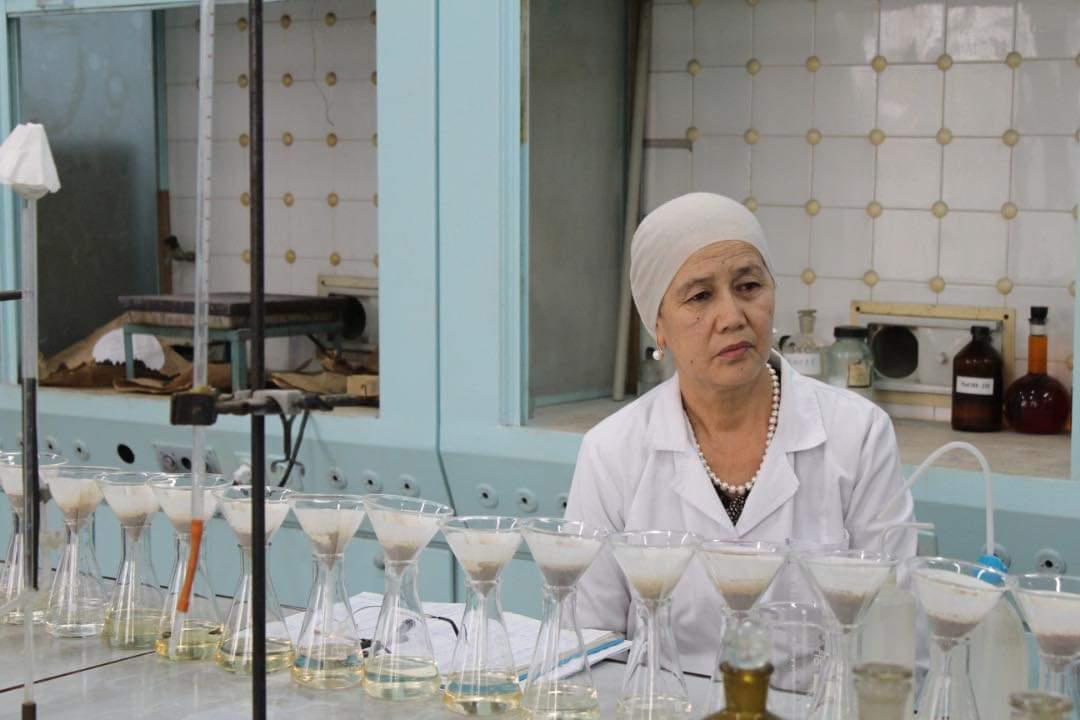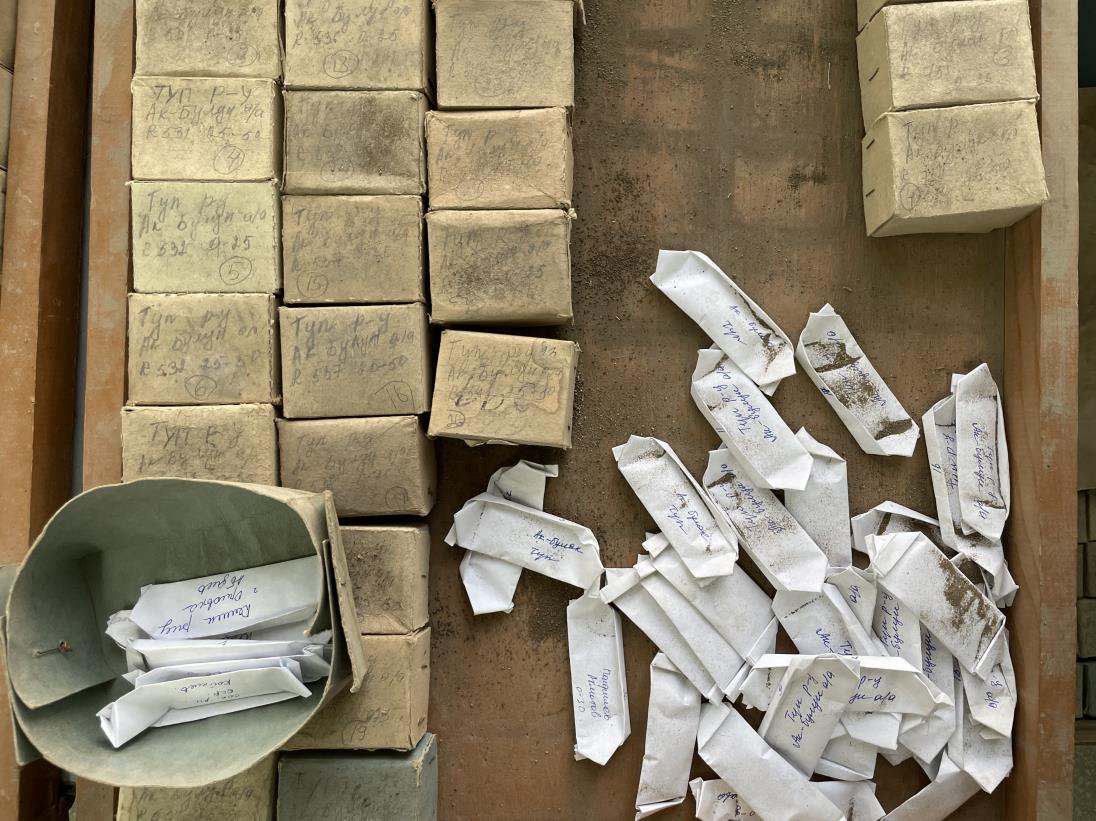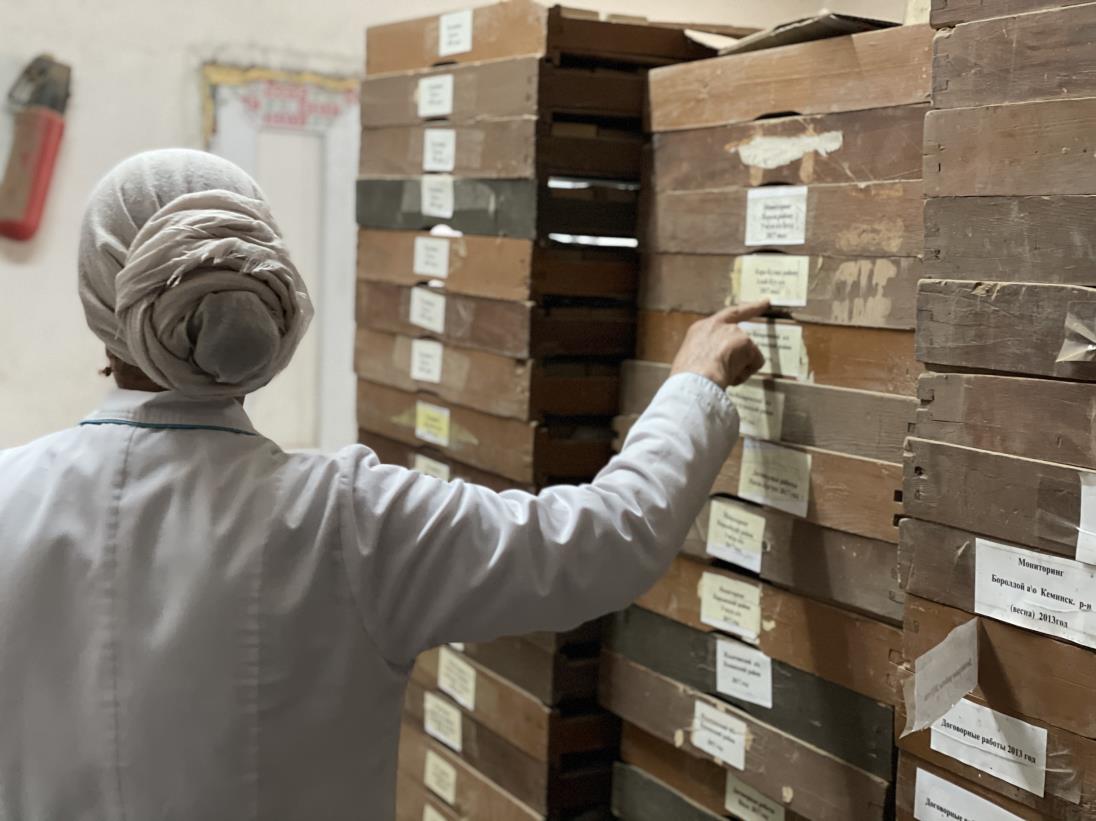
A life dedicated to the soil
The contribution of Gulmira and everyone to counter soil degradation processes is celebrated annually on 5 December, World Soil Day.
Gulmira in the soil lab. ©FAO
02/12/2021
It was her first employment right after school and a perfect match for a lifetime. Forty years have already passed and Gulmira Dootalieva is still with Kyrgyzstan’s State Agency for Land Resources as a soil analyst and every day her passion for her profession is only growing.
"Life begins here, in our laboratory. Soil is life; without it there will not be a good harvest, which means there will not be enough high-quality food for us," says Gulmira.
Soil is home to more than one-quarter of our planet’s biodiversity; 95 percent of the food we eat comes from the soil. As a soil scientist, Gulmira gathers, interprets, and analyzes information about the chemistry, biology, and physics of soil to better understand this key natural resource.
Soil is home to more than one-quarter of our planet’s biodiversity; 95 percent of the food we eat comes from the soil.
Although Kyrgyzstan is an agrarian country, there are only two soil analysis laboratories in the Republic: one in the north (in the capital) and another in the south. Both occupy mostly women who come here as young students to work as chemists and laboratory assistants and remained until today when they have become grandmothers who also work faithfully for the benefit of the country and the food safety of people.
The contribution of Gulmira, her colleagues, and everyone to counter soil degradation processes – one of the most important global problems for agricultural production and food security – is celebrated annually on 5 December, World Soil Day.
"Working with the soil is a vocation," says Gulmira, smiling, who works along with four other women in the lab in Bishkek.
Yet, times are changing.


Soil samples of Tyupsky district, Issyk-Kul region. Test tubes with chemicals during soil analysis. ©FAO
Nowadays, attempts to attract young specialists to work in the laboratory have not been crowned with success. All employees, including Gulmira, do not know who will come to replace them even though the work with soil analysis is important, as the quality of crops depends on it and hence the food we eat. Yet, it’s very diligent work as well. Nevertheless, young people are reluctant to connect their lives with such a profession, considering it poorly paid and not prestigious enough.
At the beginning of this year, an FAO project, funded by the Global Environmental Facility (GEF), helped the State Agency renew its special facilities by purchasing new equipment for the laboratory. This not only changed the atmosphere and working conditions for soil analysts, but also allowed for better and faster collection and cultivation of soil for the benefit of farmers, private entrepreneurs, departments, and academia.
"Our equipment has not changed since the Soviet Union times," Gulmira admits. “We felt happy as children with the new toys, as such an update will help us not only to do our job better, but also possibly attract young people to work with us; they love technology and all these fashionable things."

Gulmira in the Soil Archive of the State Agency for Land Resource, Bishkek, Kyrgyzstan. ©FAO
The State Agency for Land Resources is a government body responsible for implementing state policy on land resources and tenure, state registration of real estate rights, geodesy and cartography, and many more, and is thus a crucial player to improve soil fertility in the country. Those who work here, including Gulmira, contribute greatly to food security.
The new equipment provided by the GEF-funded project on sustainable management of mountainous forest and land resources under climate change can help ensure better soil fertility and reduce soil degradation.
Gulmira is sure that soils are the future and there is nowhere without them The work is so interesting and fascinating that she did not notice how all her important years passed side-by-side with the soil, but she does not get upset and assures that, if she had a second chance to live this life, she would choose this profession again.
Related links
Read more
